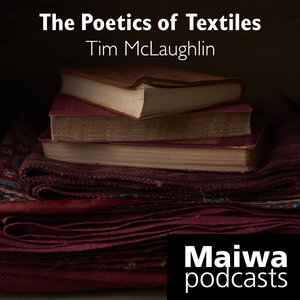A Sad Goodbye to the Baba Tree
[Update: News of the Baba Tree's closing has spread and demand has gone up for the remaining stock. We do sell these baskets but we don't sell them online. If you are interested please visit our store soon. If you live far away you can contact the Baba Tree directly through the contact info on their website: www.babatree.com]

We have carried baskets from Gregory MacCarthy's Company The Baba Tree for a number of years now. Last week we had a visit with him as he delivered his last load of baskets.
It is no small challenge to be an individual working in a different country, across the ocean, on a separate continent. This challenge is compounded when you are also trying to work on the ground and are hopeful that you can elevate the level and quality of craft. You have to work with the individual craftsperson, you have to work with their family, you have to work with the village, you have to work with local officials, custom's officers, government officials - in two countries. Those who have followed our Jawaja posts know how difficult this can be. Gregory has done all this with the Baba Tree, as anyone who has seen his baskets knows. These are tightly woven in a masterful way and have evolved over the years to feature innovations and an evolution of style.
And yet, as Gregory explained to us, a combination of health issues (from tropical diseases), changes in the attitudes of local officials, and the continued stress of trying to be both in North America to promote the baskests, and in Ghana to oversee production has led him to make the hard decision to close down. He wrote to us, saying
"I'm a romantic when it comes to offering quality and good service. To offer the best product that is available on the market requires one to micro manage the production process. You have to be in Bolgatanga. Also, one has to be there to make sure that the weavers are being compensated fairly and are being taken care of in terms of hospital expenses paid, that Ghana's national health insurance scheme doesn't cover, or to help with some cash for advanced education."
"I have been informed by Greyhound employees at the depot that Greyhound is going to start "cubing" or charging by volume -just like Canada Post- and I sense that it will send shipping rates sky high. As you know, the sacks of baskets weigh about as much as a thimbleful of saffron and are about the size of a '63 Volkswagen. From Greyhound's perspective, the Baba Tree is ripe for the picking."
So it is sad for us as sellers of the baskets. We love to sell them to the public and to buy them for ourselves. It is sad for Gregory who has poured his heart and heath into a business venture that can make a positive change for craftspeople. Again in his words:
"The weavers will continue to weave. They will get poorly paid contracts from other folks or sell their baskets at the market.
"It is in the realm of the possible that, through the exquisitely beautiful / functional baskets the weavers of Bolgatanga create, economic stability and sustainable development can be attained. It just requires compassionate but saavy business people to recognize the basket's worth in the age of the plastic bag and the toil that it took to bring the creative impulse to fruition.
"In most markets, particularly in the US and Europe, the work is undervalued which is reflected in the cheap price for Bolga baskets in those markets. If the weaver's story was properly told by the likes of me, then, perhaps, the buying public would dig a little deeper and bulk up their air miles with the added and justified expense.
"I returned to Bolga last October armed with a camcorder to document the whole industry and the "Tree's" place in it, but for personal reasons the camera never made it out of it's box and thus, customers are still left in the dark as to who exactly makes these baskets, what challenges they face and what victories are beheld.
"The weavers of Bolgatanga can take care of themselves through their artistry and create spin off enterprises through seed capital saved once their daily needs have been met. But their collective poverty doesn't give them much leverage at the bargaining table and the weavers fall prey to the dictates of the market.
I will be in the warehouse, poised and standing ready, until the basket stock is exhausted.
I extend my gratitude to all of you, my customers.
I hold you all. I mean that.
Gregory MacCarthy
The Baba Tree









2 comments
What a sad time to say goodbye to such wonderful craftspeople! I wish there was another solution to make the connection to the US for their benefit. I have one of these baskets and I cherish it. I hope that these talented people can continue to make these and have the health care and profits they deserve.
ReplyDeleteWhat a sad news, I hope artisans will continue their craft.
ReplyDeleteWe moderate comments to keep posts on-topic, avoid spam, and inappropriate language. Comments should appear within 24 hours.